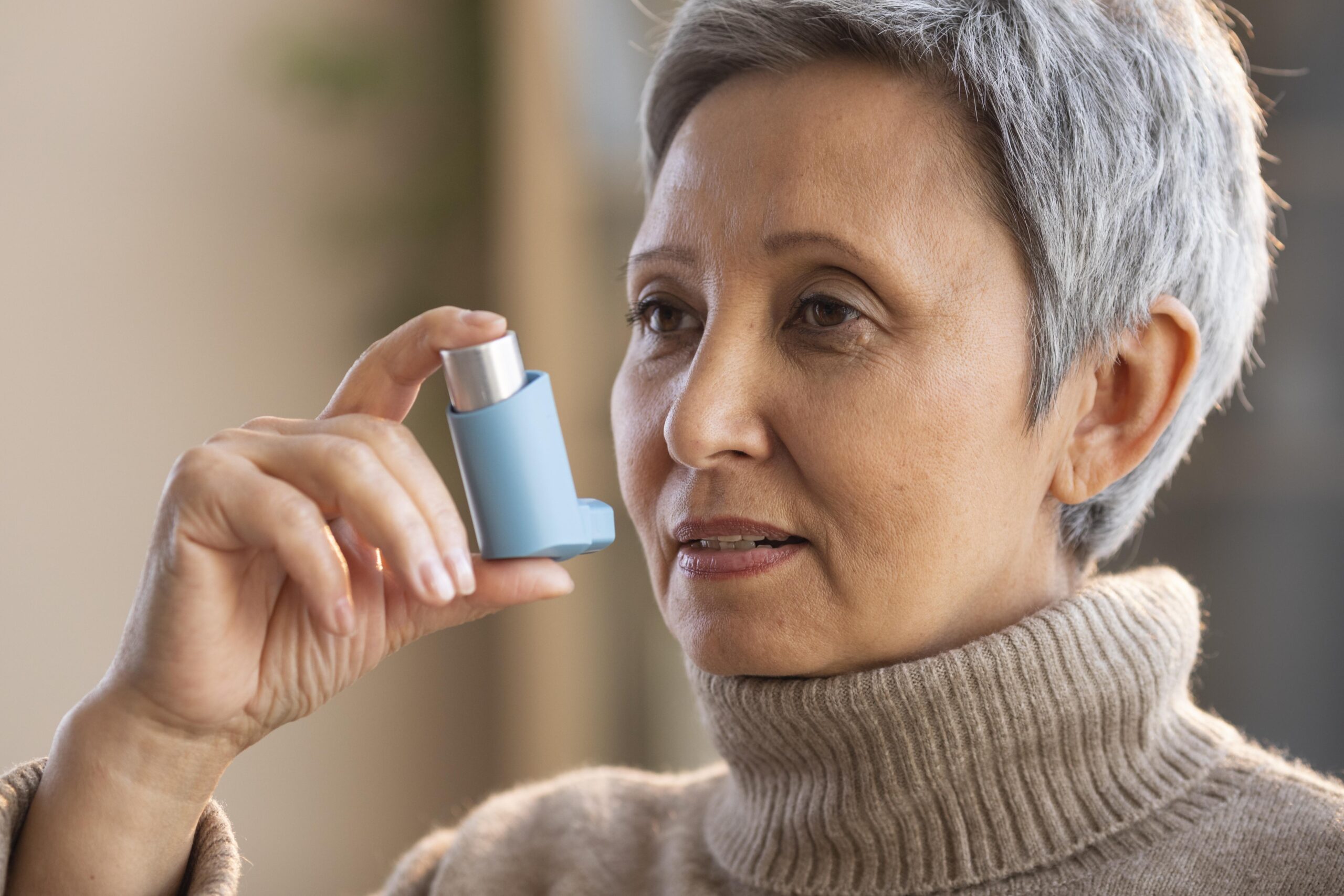Asthma Management for Seniors: Inhalers, Lifestyle, and More
Contents
- 1 Asthma Management for Seniors: Inhalers, Lifestyle, and More
- 1.1 Introduction:
- 1.2 Understanding Asthma in Seniors:
- 1.3 Inhaler Usage and Techniques:
- 1.4 Medication Management:
- 1.5 Frequently Asked Questions (FAQs):
- 1.5.0.1 Heart-Healthy Eating for Seniors Tips
- 1.5.0.2 Common Heart Conditions in Old Age and Their Treatments
- 1.5.0.3 Cardiac Rehabilitation for Elderly Patients
- 1.5.0.4 Osteoporosis Prevention in Seniors
- 1.5.0.5 Understanding Arthritis: A Comprehensive Guide to Joint Health
- 1.5.0.6 Managing Arthritis Pain in Seniors
- 1.5.0.7 Exercise Tips for Maintaining Strong Bones in Old Age
- 1.5.0.8 Age-Related Changes in Bone Density and Structure
- 1.6 Conclusion:
Read DISCLAIMER
Discover effective asthma management strategies tailored for seniors. Learn about inhaler techniques, lifestyle adjustments, and more to ensure optimal respiratory health and well-being.
Introduction:
Asthma, a chronic respiratory condition affecting people of all ages, poses unique challenges for seniors. As aging impacts lung function and introduces potential health complications, effective asthma management becomes essential. This article combines insights from both perspectives, offering a comprehensive guide to asthma management tailored for seniors.
Understanding Asthma in Seniors:
Seniors face distinctive aspects of asthma management due to age-related changes and potential comorbidities. Collaborating with healthcare professionals to develop a customized asthma management plan is crucial.
Inhaler Usage and Techniques:

Inhalers are pivotal tools in asthma management. Seniors should be well-versed in various inhaler types, including:
Metered-Dose Inhalers (MDIs): Utilizing a spacer can enhance medication delivery by coordinating inhaling with canister activation.
Dry Powder Inhalers (DPIs): Correct inhalation technique, involving forceful inhalation, is vital for effective medication dispersal.
Regularly reviewing inhaler usage with healthcare providers and maintaining proper inhaler hygiene are fundamental aspects of asthma care.
Medication Management:
Seniors often juggle multiple medications. Maintaining an up-to-date medication list, including asthma drugs, helps prevent interactions. Open communication with healthcare providers ensures informed asthma treatment decisions.
Lifestyle Adjustments:
Trigger Avoidance: Identifying and minimizing exposure to allergens, smoke, cold air, and strong odors is vital.
Physical Activity: Seniors should incorporate moderate exercise after consulting their doctors to enhance lung function and overall health.
Nutrition: A balanced diet rich in fruits, vegetables, lean proteins, and whole grains supports immune function and lung health.
Hydration: Staying hydrated maintains airway mucus production, facilitating breathing.
Stress Management: Stress worsens asthma symptoms. Exploring relaxation techniques like deep breathing and meditation is beneficial.
Regular Check-ups:
Scheduled healthcare appointments allow lung function monitoring, medication adjustments, and overall health assessments for seniors managing asthma.
Emergency Action Plan:
A comprehensive asthma action plan is essential. Seniors should understand steps to take during symptom exacerbations or asthma attacks, including proper use of rescue inhalers and when to seek medical assistance.
Combining Insights for Effective Asthma Management in Seniors:
Incorporating the best aspects from both articles, this comprehensive guide provides actionable steps for seniors to effectively manage asthma:
– Collaborate with healthcare professionals for a tailored management plan.
– Master inhaler usage techniques and maintain inhaler hygiene.
– Prioritize medication management by updating medication lists and communicating with doctors.
– Embrace lifestyle adjustments: avoid triggers, engage in moderate exercise, adopt a healthy diet, stay hydrated, and manage stress.
– Regular healthcare check-ups ensure ongoing lung health monitoring and medication optimization.
– Equip seniors with an asthma action plan for handling exacerbations or attacks.
Frequently Asked Questions (FAQs):
Can seniors with asthma exercise regularly?
Yes, but it’s important to consult doctors before beginning any exercise regimen to ensure safety.
Are there specific dietary recommendations for seniors with asthma?
Yes, a diet rich in fruits, vegetables, lean proteins, and whole grains supports lung health and overall well-being.
Can stress impact asthma symptoms in seniors?
Yes, stress can exacerbate asthma symptoms. Seniors should explore stress management techniques.
Read more about
Heart-Healthy Eating for Seniors Tips
Common Heart Conditions in Old Age and Their Treatments
Cardiac Rehabilitation for Elderly Patients
Osteoporosis Prevention in Seniors
Understanding Arthritis: A Comprehensive Guide to Joint Health
Managing Arthritis Pain in Seniors
Exercise Tips for Maintaining Strong Bones in Old Age
Age-Related Changes in Bone Density and Structure
Conclusion:
In the realm of senior healthcare, effective asthma management emerges as a crucial component for maintaining respiratory health and overall well-being. As aging introduces unique challenges to asthma care, a holistic approach that combines medical expertise and lifestyle adjustments becomes essential.
By understanding the distinctive aspects of asthma management in seniors and collaborating with healthcare professionals, seniors can develop tailored asthma management plans that address their specific needs. Inhaler usage techniques, proper medication management, and regular check-ups contribute to optimal asthma control.
Lifestyle adjustments play a pivotal role in senior asthma management. Avoiding triggers, engaging in suitable physical activity, maintaining a balanced diet, staying hydrated, and managing stress collectively contribute to improved lung health and symptom control.
Equipping seniors with an emergency action plan ensures that they are prepared to handle exacerbations or asthma attacks confidently. This comprehensive guide emphasizes the importance of staying informed, actively participating in one’s health, and seeking medical guidance when needed.
In conclusion, with the right strategies, seniors can effectively manage asthma, enhance their quality of life, and continue enjoying their golden years with vitality and confidence.

Please tell me more about your excellent articles
I like this web blog it’s a master piece!
Glad I discovered this on google..
Your article helped me a lot, is there any more related content? Thanks!
Thanks for sharing. I read many of your blog posts, cool, your blog is very good.